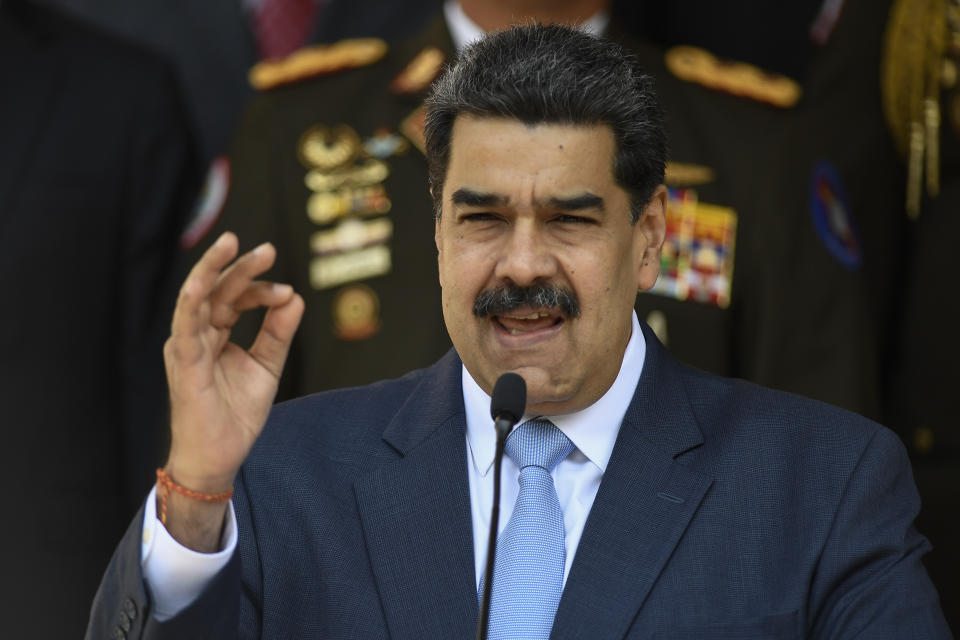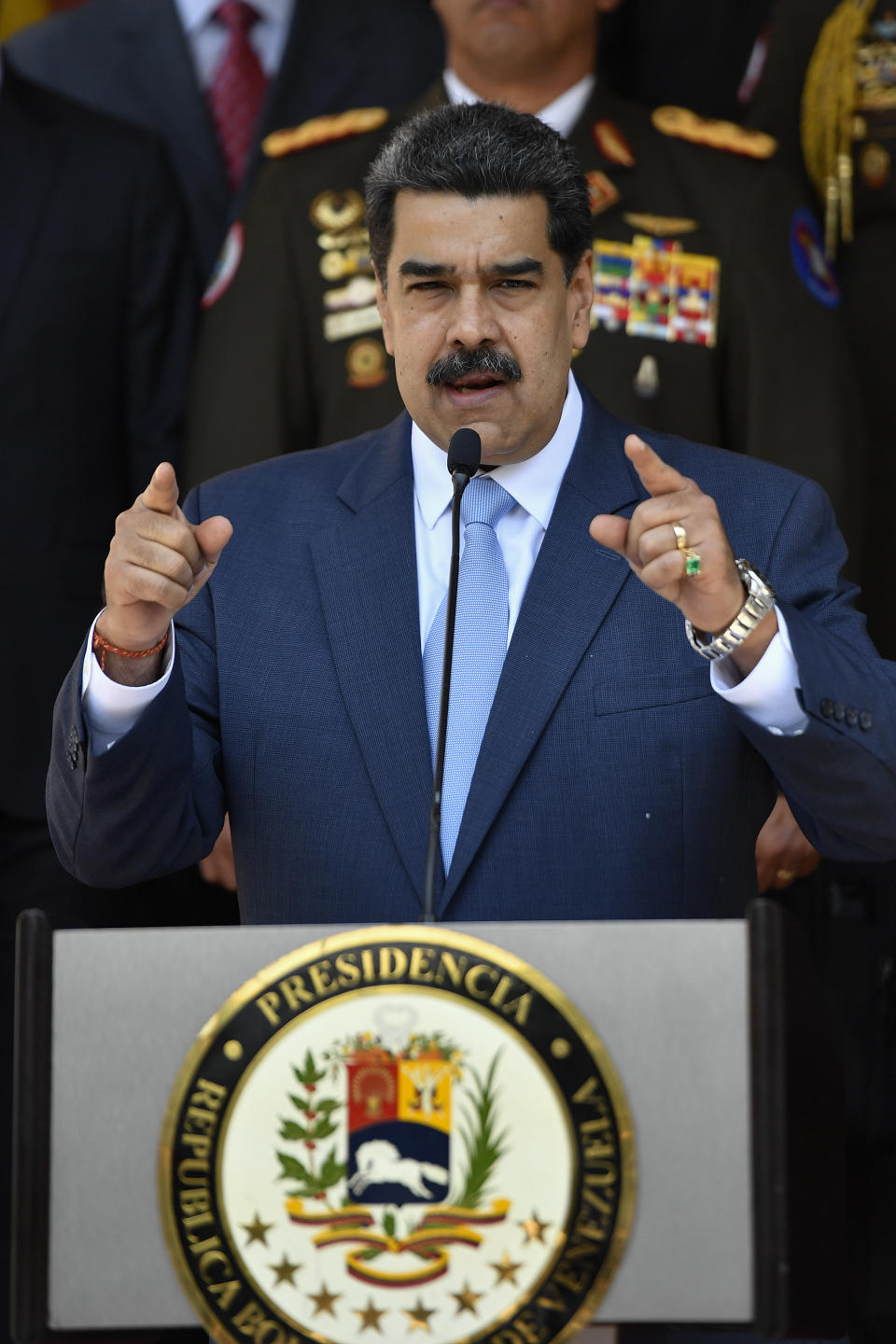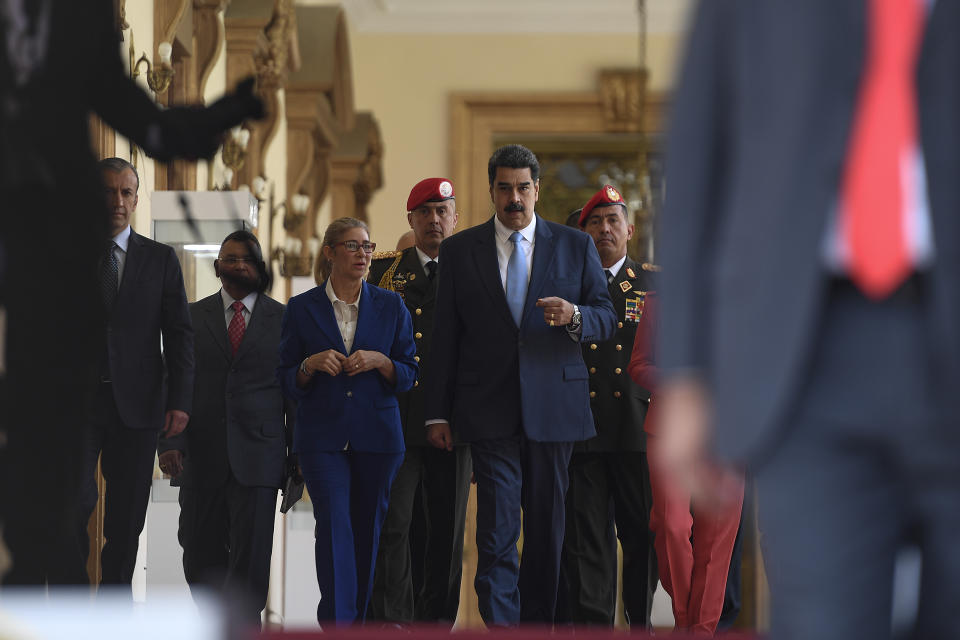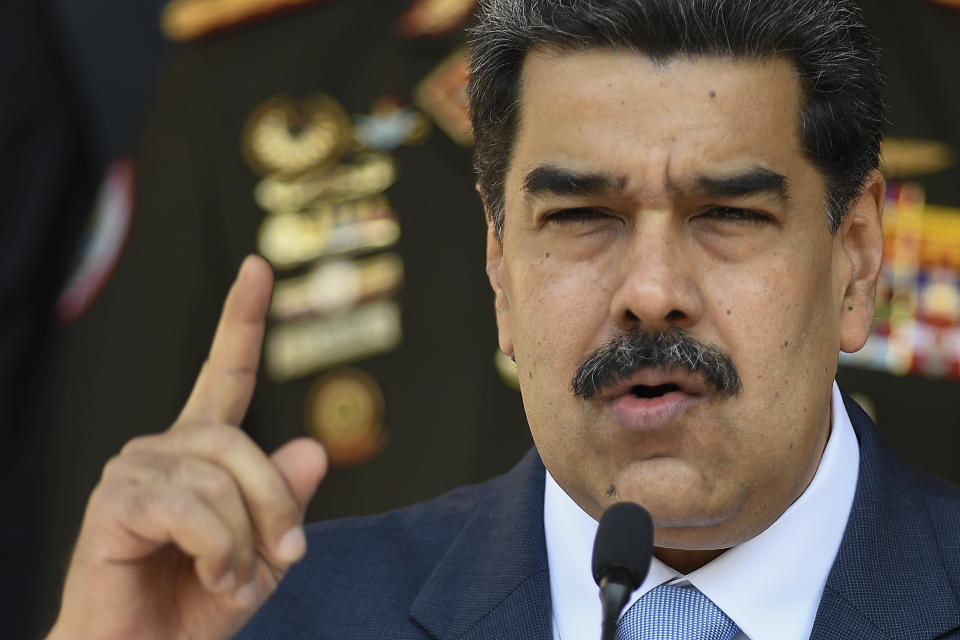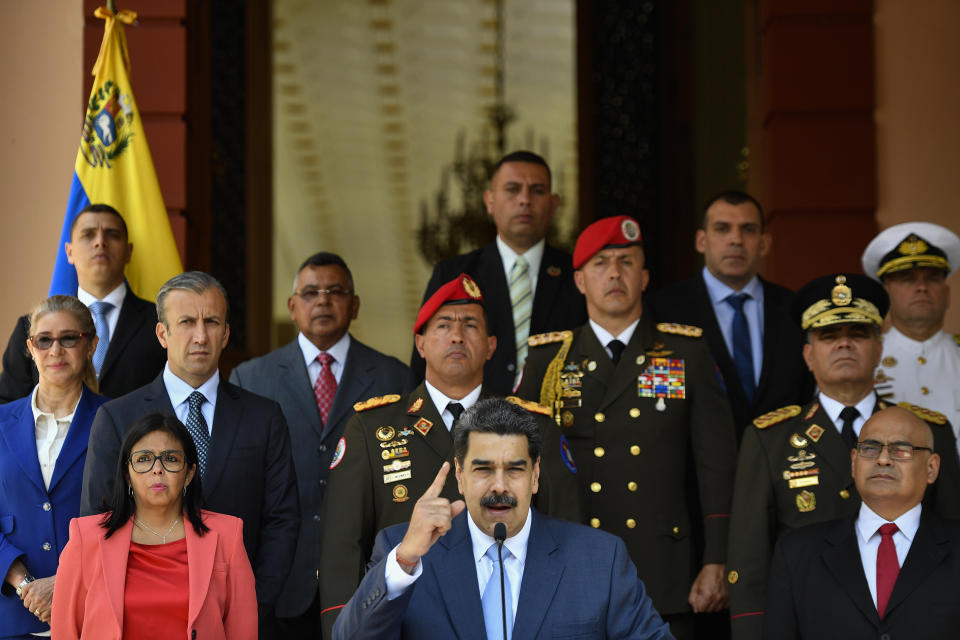US sanctions Russian firm targeting Venezuela's Maduro
CARACAS, Venezuela (AP) — The Trump administration on Thursday hit a second subsidiary of the Russia's state-controlled Rosneft Oil Company with financial sanctions aimed at forcing Venezuela’s socialist President Nicolás Maduro from power.
Officials blacklisted TNK Trading International, saying it brokered the sales and transport of large amounts of sanctioned Venezuelan oil, propping up Maduro's illegitimate government. This measure follows U.S. sanctions a month earlier against Rosneft Trading S.A. on similar claims.
“The Trump Administration remains committed to targeting those who support the corrupt regime’s exploitation of Venezuela’s oil assets,” U.S. Treasury Secretary Steven T. Mnuchin said in a statement.
The U.S. was first among nearly 60 nations to recognize opposition leader Juan Guaidó a year ago as Venezuela's rightful leader. The international coalition considers Maduro illegitimate after 2018 elections widely deemed fraudulent because the most popular opposition candidates were banned from running against him.
Venezuela was once among South America's wealthiest nations with vast oil resources, but it has spiraled into political and economic crisis under what critics consider failed socialist policies and authoritarian rule launched by the late President Hugo Chávez.
His successor, Maduro, remains firmly in control of Venezuela with backing from China and Russia, and most importantly Venezuela's military.
The U.S. has launched broad financial sanctions aimed at choking Maduro's government of its oil wealth. It's also sanctioned dozens of people in Maduro's inner circle, including Maduro.
Maduro, in a national address from the presidential palace in Caracas, suspended flights to Europe and neighboring Colombia for one month, concerned about the spread of the coronavirus, which he said has not yet entered Venezuela.
He also called on the U.S. to lift “criminal” sanctions, adding that they block the nation from buying medicine needed in health emergencies. U.S. officials maintain that the sanctions do not prohibit buying food and medicine.
